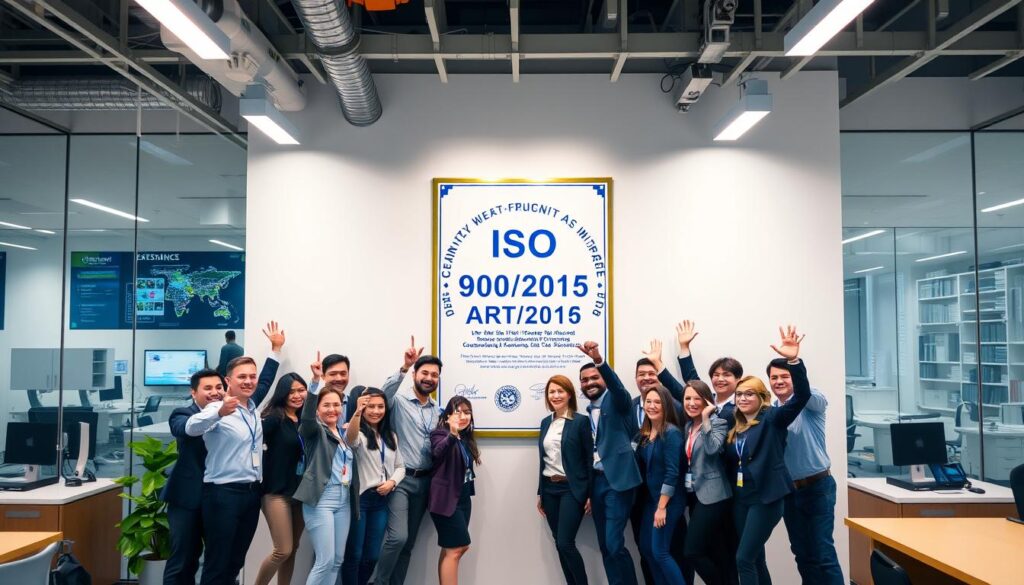Sri Lanka Strengthens Diplomatic Ties with India, China
Sri Lanka is making big moves in South Asia. It’s boosting its foreign policy by getting closer to India and China. This is crucial because Sri Lanka is in a key spot for sea routes. Seeing how important these partnerships are, especially after a tough economic hit, Sri Lanka is stepping up.
The country got a huge $4 billion aid from India and China is its main lender. President Wickremesinghe is all in on building these relationships. He wants alliances that support Sri Lanka’s future and independence.
Key Takeaways
- India’s $4 billion economic support supersedes IMF’s assistance during Sri Lanka’s recent fiscal crisis.
- China’s extensive involvement in post-civil war development projects underscores its significant influence in Sri Lankan affairs.
- The Janatha Vimukthi Perumana’s stance on foreign policy exhibits a tilt towards China, creating a complex diplomatic landscape.
- Delicate balancing of Sri Lanka’s alliances with India and China remains a focal point for the administration.
- India’s proactive “India Out” tourism campaign and immediate aid reflect a strategic investment in Sri Lankan stability.
- India and China, with competing interests, remain unlikely allies in Sri Lanka’s path to recovery.
- New initiatives under the “Indo-Lankan investment partnership” highlight India’s commitment to regional solidarity.
Overview of Sri Lanka’s Diplomatic Strategy
Sri Lanka is carefully crafting its foreign policies due to increasing geopolitical rivalry. The country aims to boost its strategic autonomy. Strengthening relationships with major Asian countries, especially India and China, is key. Sri Lanka’s focus is on improving its economy and military, and smoothly handling regional politics. They commit to nonaligned foreign policies.
The nation has a clear stance on global conflict management. Its neutral position in the Ukraine conflict highlights this approach. By staying non-aligned, Sri Lanka wisely manages its international relations during global tensions. Strengthening ties with India shows a smart balance. They are working more on energy and economic areas together.
Engaging diplomatically with India and China brings clear benefits. Projects in defense, trade, and infrastructure are ongoing. These efforts show Sri Lanka’s smart strategy. It aims to gain diplomatically while keeping balanced ties globally.
| Sector | Initiative | Partner Country | Details |
|---|---|---|---|
| Defense | Capacity-building for Police Officers | India | Training courses for over 130 officers in India’s premier defense institutions, focusing on counter-terrorism and internal security. |
| Economic | Financial Assistance | India | Financial support under the “Aid to Sri Lanka” program, reinforcing economic ties and facilitating Sri Lanka’s financial restructuring with international bodies. |
| Energy | Enhanced Cooperation | India | Agreement in 2023 focused on strengthening energy and economic exchanges, crucial for Sri Lanka’s sustained growth and energy security. |
In navigating global diplomacy, Sri Lanka is keen on a balanced, independent policy. By connecting with both India and China, it boosts its role. Sri Lanka aims for regional stability and prosperity. Its strategy of forming varied alliances while staying autonomous makes it key in South Asia.
Sri Lanka Strengthens Diplomatic Ties with India and China
Sri Lanka is in a key spot in the Indian Ocean, making big moves diplomatically. It’s working closely with India and China, two big names in the region. These partnerships cover defense, economy, and big projects, all while keeping a balanced foreign policy.
Enhanced Defense Cooperation with India Reflects Deeper Ties
The partnership between Sri Lanka and India has reached a new level. Thanks to the ITEC program, India is helping Sri Lanka’s officers with special training and support. This is key for India to keep its influence in the Indian Ocean. The two countries also work together on protecting marine ecosystems and boost trade with renewable energy projects in focus.
Sri Lanka’s Economic Engagements and Infrastructure Projects with China
Sri Lanka and China are also working closely, with big agreements shaping their partnership. Landmark projects like Port City Colombo show China’s big role, as Sri Lanka’s top creditor. Despite financial and political challenges, these projects keep moving forward, linking to China’s broad economic plans.
Strategic Balancing in Regional Partnerships
Sri Lanka is smartly managing its relations with big economies like China, India, and the US. Even with India and China’s tensions, Sri Lanka seeks balance, keeping its interests first. This diplomatic skill helps it stay important in regional and global politics, where smart choices matter a lot.


